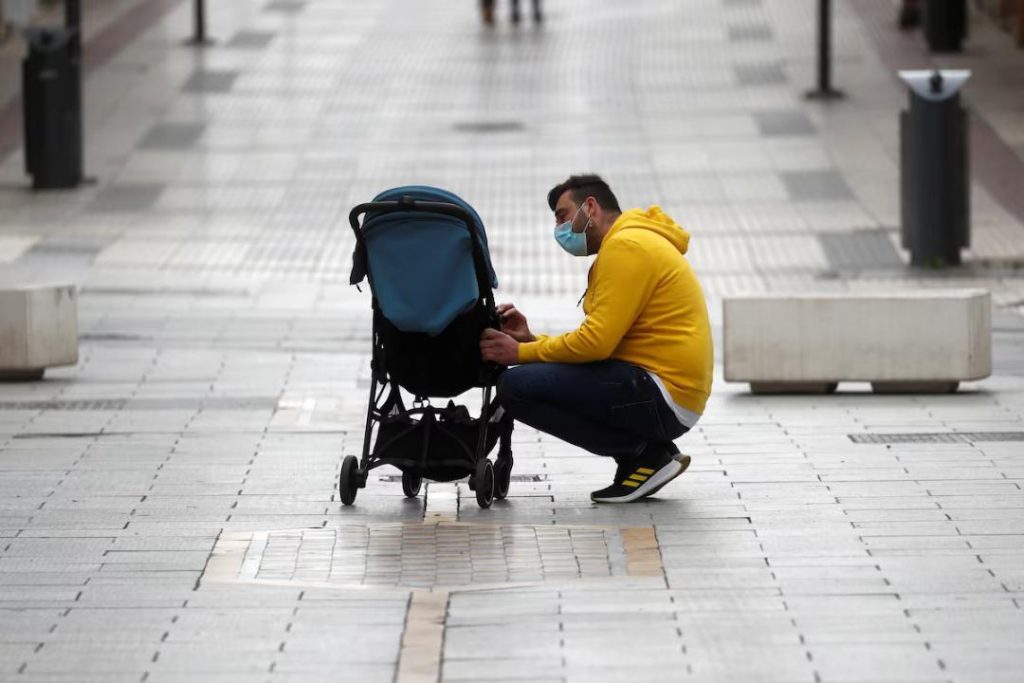
Spain to Offer 17 Weeks of Parental Leave to Both Mothers and Fathers
Spain has made a significant move towards promoting gender equality and supporting new parents by announcing plans to extend its parental leave policy to 17 weeks, with both mothers and fathers eligible for fully-paid leave after the birth of a child. This new policy marks a significant shift towards a more equal and family-friendly environment, setting an example for other European countries to follow.
According to a recent report by Reuters, the Spanish government has announced plans to give both mothers and fathers an additional week of paid leave after the birth of a child, bringing the total parental leave to 17 weeks. This move is expected to benefit thousands of new parents across the country and is a significant step towards promoting gender equality and supporting working families.
Spain and Finland are the only two EU countries that offer equal, fully-paid birth leave to both parents. This new policy is a major departure from the traditional parental leave policies that have been in place in many European countries, where mothers have typically been given more extensive leave periods than fathers.
The move is seen as a major step forward for feminism in Spain, with the country’s Minister of Equality, Irene Montero, stating that “Spain is moving towards feminism…and there’s no turning back.” The new policy is expected to have a significant impact on the country’s workforce, particularly in industries where men have traditionally been underrepresented, such as education and healthcare.
The benefits of extended parental leave are numerous. For new mothers, it provides a much-needed opportunity to bond with their newborn child and recover from the physical and emotional demands of childbirth. For new fathers, it allows them to take an active role in caring for their child and build a strong bond with their partner.
Extended parental leave can also have a positive impact on the country’s workforce. When both parents are able to take time off to care for their child, it can lead to increased productivity and job satisfaction when they return to work. This, in turn, can have a positive impact on the overall economy.
In addition to the benefits for individual families and the workforce, extended parental leave can also have a positive impact on society as a whole. When both parents are able to take an active role in caring for their child, it can help to break down traditional gender stereotypes and promote a more equal and balanced distribution of childcare responsibilities.
The new policy is also expected to have a positive impact on child development. Studies have shown that children who are cared for by both parents in the early years of their life tend to develop better social and emotional skills, and have better academic performance.
While the new policy is a significant step forward, there are still many challenges that need to be addressed. For example, many working parents will need to find alternative childcare arrangements while they are on leave, which can be difficult and expensive.
In addition, there may be concerns about the impact on the economy, particularly in industries where workers are in short supply. However, the benefits of extended parental leave are likely to outweigh the costs, and the policy is expected to have a positive impact on the country’s workforce and economy as a whole.
In conclusion, Spain’s new policy of offering 17 weeks of parental leave to both mothers and fathers is a significant step forward for feminism and family-friendly policies. It is a major departure from traditional parental leave policies and is expected to have a positive impact on individual families, the workforce, and society as a whole.
As the Spanish government continues to implement this new policy, it will be important to monitor its impact and make any necessary adjustments. However, with the potential benefits of extended parental leave, it is likely that this policy will be a major success and a model for other European countries to follow.
Source:



